Oddsfish! by Robert Hugh Benson (most interesting books to read .TXT) 📖
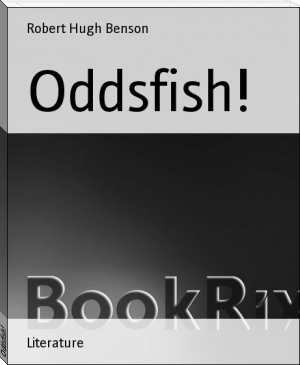
- Author: Robert Hugh Benson
Book online «Oddsfish! by Robert Hugh Benson (most interesting books to read .TXT) 📖». Author Robert Hugh Benson
For here I was in London at last, which, whatever men may say, is the heart of the world, as Rome is the heart of the Church; and there, within a gunshot, was the gate of Whitehall where the King lived, and where my fortunes lay. Neither was I here as a mere Englishman come home again after seven years, but as a messenger from the Holy See, with work both to find and to do. To-morrow I must set out, to buy, as I may say, the munitions of war--my clothes and my new periwigs and my swords and my horses; and then after that my holy war was to begin. I had my letters not only to the Court, but to the Jesuits as well--though of these I had been careful to say nothing to my cousin; for I could present these very well without his assistance. And this holy war I was to carry on by my own wits, though a soldier in that great army of Christ that fights continually with spiritual weapons against the deceits of Satan.
I wondered, then, as I lay there in the dark, as to whether this war would be as bloodless as seemed likely; whether indeed it were true (and if true, whether it were good or bad) that Catholics should again almost be in the fashion, as my cousin had said. There were still those old bloody laws against us; was it so sure that they would never be revived again? And if they were revived, how should I bear myself; and how would my Cousin Jermyn, and all those other Catholics of whom London was so full?
Of all these things, then, I thought; but my last thoughts, before I commended myself finally to God and Our Lady, were of my Cousin Dorothy--that little maid, as I feigned to myself to think of her. Yes; I would go down to Hare Street in Hertfordshire so soon as I conveniently could, without neglecting my business. It would be pleasant to see what place it was that my Cousin Dorothy called her home.
CHAPTER II
It was again a fair evening, five days later, when, in one of my new suits, with my new silver-handled sword, I set out on foot to Whitehall to see the King first and the Duke afterwards, as word had been brought me from the Chamberlain's office; for I had presented my letters on the morning after I had come to London.
Those four days had passed busily and merrily enough in company with my cousins. The first two days I had spent in the shops, and had expended above forty pounds, with both my cousins to advise me. It would not be to the purpose to describe all that I bought; but there was a blue suit I had, that was made very quickly, and that was the one I wore when I went to see the King, that was very fine. All was of blue; the coat was square-cut, with deep skirts, and had great laced cuffs that turned up as high as the elbow, showing the ruffled wristbands of the shirt beneath; the waistcoat below--in the new fashion--was so hung as to come down to my knees; and both coat and waistcoat had buttons all the way down the front, with silver trimming. My stockings--for the brodequins were out of fashion again now--were of a darker blue, and my shoes of strong leather, with a great rosette upon each, for buckles were not usual at this time. Then my cravat was of Flanders lace; and my Cousin Dorothy showed me how to fasten it so that the ends lay down square in front; and my hat was round with a blue favour in it upon the left side; and I wore it with what was called the "Monmouth cock." I carried a long cane in my hand, with a silver head, and a pair of soft leather gloves, without cuffs to them. Then, as my own hair was still short, I bought a couple of dark periwigs of my own colour, and put on, the better to go to Whitehall in. Besides these things I had three other suits, one very plain, of grey, and two less plain; a case of pistols, and a second sword, very plain and strong, in a leather scabbard, with its belt; two pair of riding-boots, besides other shoes; and two dozen of shirts and cravats, of which half were plain, without lace.
While we went to and fro on all those businesses, we saw something both of the town and of the folks. On our way back from Cheapside one day, we turned aside to see the Monument, with the lying inscription upon it; and then to see the Cathedral, which was already of a considerable height. Of the persons of importance we saw one day the Duke of Buckingham in his coach, drawn by two white horses, with riders before and behind, pass along towards Whitehall; and a chair went by us one evening in which, it was said, was the Duchess of Portsmouth (once Madame de la Querouaille, or Mrs. Carwell); but it was so closely guarded that I could not see within. Also, we saw my Lord Shaftesbury, a sly yet proud looking fellow, I thought him, walking with Mr. Pepys, who fell later under suspicion of being a Catholic, because his servant was one.
On the Saturday evening we went to take the air in St. James' Park, and walked by Rosamund's pond; and here we but just missed seeing the King and Queen; for as we came into it from Charing Cross (where I had seen for the first time in the public street the Punch-show, which I think must take its origin from Pontius Pilate) their Majesties rode out--hand in hand, I heard later--through the Park Gate into the Horse-Guards, and so to Whitehall, with guards in buff and steel following. There was a great company of gentlemen and ladies who rode behind, of whom we caught a sight; but they were too far away for us to recognize any of them. (I saw, too, the cress-carts come in from Tothill fields.)
On the Sunday morning we went all three together to hear mass sung in St. James'; and here for the first time I saw Mr. Huddleston, who was of the congregation, who was in his priest's habit--as my cousin had told me--for this was allowed to him by Act of Parliament, because he had saved the King's life after the battle of Worcester. He was a man that looked like a scholar, but was very brown with the sun, too. We could not see the Duke, for he was in his closet, with the curtains half drawn--a tribune, as we should call it in Rome. It was very sweet to me to hear mass again after my journey; and it was not less sweet to me that my Cousin Dorothy was beside me; but the crush was so great, of Protestants who had come to see the ceremonies, as well as of Catholics, that there was scarcely room even to kneel down at the elevation. On our way back we saw Prince Rupert, a fat pasty-faced man, driving out in his coach. He spent all his time in chymical experiments, I was told. As Sedley said, he had exchanged Naseby for Noseby.
I had been bidden, on the Monday, to present myself first at Mr. Chiffinch's lodgings that were near the chapel, between the Privy Stairs and the Palace Stairs; and, as I was before my time, when I came into the Court, behind the Banqueting Hall, I turned aside to see the Privy Garden. A fellow in livery, of whom there were half a dozen in sight, asked me my business very civilly; and when I told him, let me go through by the Treasury and the King's laboratory, so that I might see the garden: and indeed it was very well worth seeing. There were sixteen great beds, set in the rectangle, with paved walks between; there was a stone vase on a pedestal, or a statue, in the centre of each bed, and a great sundial in the midst of them all. There were some ladies walking at the further end, beneath the two rows of trees; and the sight was a very pretty one, for the sunlight was still on part of the garden and on the Bowling-Green beyond the trees; and the flowers and the ladies' dresses, and the high windows that flashed back the light, all conspired to make what I looked upon very beautiful. The lodgings that looked on to the Privy Garden and the Bowling-Green were much coveted, I heard later; and only such personages as Prince Rupert, my Lord Peterborough, Sir Philip Killigrew, and such like, could get them there.
Mr. Chiffinch's lodgings, when I came to them, were not so fine; for they looked out upon little courts on both sides, and my Lady Arlington's lodgings blocked his view to the river. I went up the stairs, and beat upon the door with my cane: and a voice cried to me to enter.
Now I had heard enough of Mr. Chiffinch to make me prejudge him; for his main business, it seemed, was to pander to the King's pleasures; and he had his rooms so near the river, it was said, that he might more easily meet those who came by water and take them up to His Majesty's rooms unobserved: yet when I saw him, I understood that any prejudgement was unnecessary. For if ever man bore his character in his face it was Mr. Chiffinch.
He had risen at my knock, and was standing in the light of the window. He was dressed in a dark suit, very plain, yet of very rich stuff, and had laid his periwig aside, so that I could see his features. He was a dark secret-looking man with his eyes set near together, and with a lip so short that it seemed as if he sneered; he stooped a little too. Yet I am bound to say that his manner was perfection itself.
"Mr. Chiffinch," I said. And at that he bowed.
"I am Mr. Roger Mallock," I said; "and I was bidden to come here at this hour."
"I am honoured to meet you, Mr. Mallock," he said. "I have had His Majesty's instructions very particular in your regard. I am ashamed that you should find me so unready; but I will not keep you above five minutes, if you will sit down for a little."
He made haste to set me a chair near the window; and with another apology or two he went out of a second door. The room in which he left me was like the suit that he wore--in that it was both plain and rich. There were three or four chairs with arms; a table, with twisted legs, on which lay a great heap of papers and a pair of candlesticks: and there was a tall lightly-carved press, with locks, between the windows. The walls were plain, with a few good
 Have you ever thought about what fiction is? Probably, such a question may seem surprising: and so everything is clear. Every person throughout his life has to repeatedly create the works he needs for specific purposes - statements, autobiographies, dictations - using not gypsum or clay, not musical notes, not paints, but just a word. At the same time, almost every person will be very surprised if he is told that he thereby created a work of fiction, which is very different from visual art, music and sculpture making. However, everyone understands that a student's essay or dictation is fundamentally different from novels, short stories, news that are created by professional writers. In the works of professionals there is the most important difference - excogitation. But, oddly enough, in a school literature course, you don’t realize the full power of fiction. So using our website in your free time discover fiction for yourself.
Have you ever thought about what fiction is? Probably, such a question may seem surprising: and so everything is clear. Every person throughout his life has to repeatedly create the works he needs for specific purposes - statements, autobiographies, dictations - using not gypsum or clay, not musical notes, not paints, but just a word. At the same time, almost every person will be very surprised if he is told that he thereby created a work of fiction, which is very different from visual art, music and sculpture making. However, everyone understands that a student's essay or dictation is fundamentally different from novels, short stories, news that are created by professional writers. In the works of professionals there is the most important difference - excogitation. But, oddly enough, in a school literature course, you don’t realize the full power of fiction. So using our website in your free time discover fiction for yourself. 
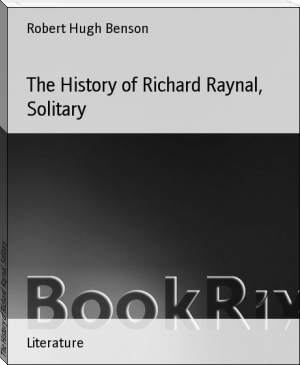
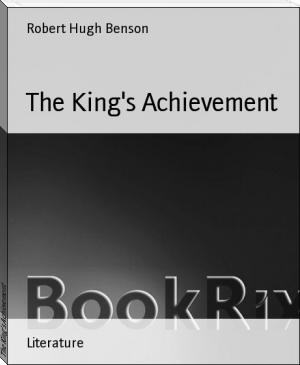
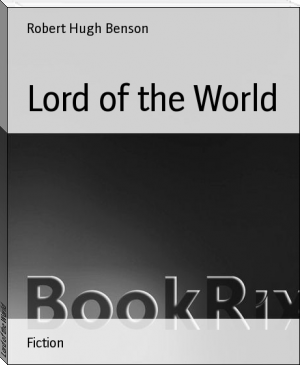
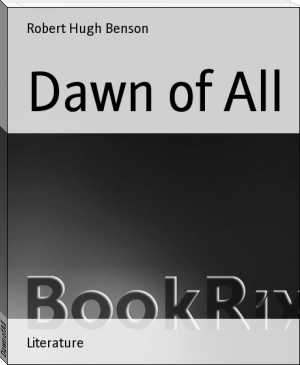
Comments (0)